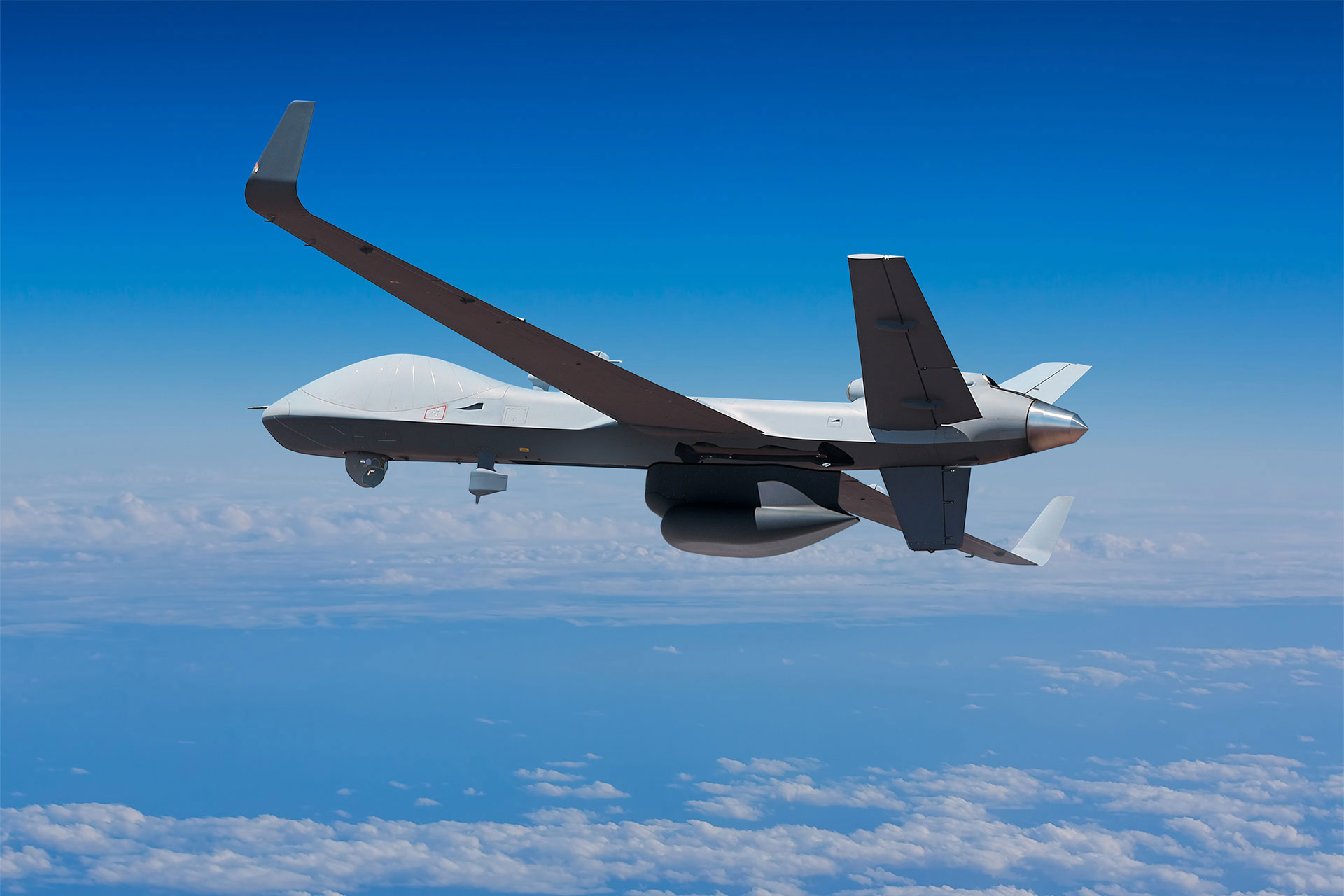Qatar is frustrated with the lack of response from the US to its request for the purchase of advanced drones after assisting with the evacuations in Afghanistan, the Wall Street Journal reported.
South Korean F-35 Stealth Aircraft Make First Public Appearance At Defense Expo Amid Regional Tensions
Armed With Unmanned Turret, T-14 Armata Tank One Step Closer To Induction By Russian Military
Doha’s dissatisfaction has been exacerbated by the fact that the country assisted the US during evacuations from Afghanistan and that the State Department has approved similar requests from other regional allies, including the United Arab Emirates (UAE), WSJ noted.
“The recent evacuation operations in Afghanistan proves that Qatar always stands ready to support its allies and for the purposes of security and stability,” a Qatari official was quoted as saying.
MQ-9 Reaper Drones
Qatar reportedly placed a request for the purchase of four MQ-9B, also known as Reaper or Predator-B drones, with the US more than a year ago. However, Washington has not yet responded to the request, and the officials refuse to explain the delays, according to the newspaper.
The four Predator B drones that Qatar is looking to buy from the US are designed by General Atomics Aeronautical Systems (GA-ASI). The SkyGuardian and SeaGuardian variants are the latest addition to the MQ-9 series.

The drone can perform over-the-horizon, medium-altitude, long-endurance (MALE) intelligence, survey, and reconnaissance (ISR). It has a 2,721 kg fuel capacity and 45 kVA power, along with 2 kW backup power.
The drone is powered by a Honeywell TPE331-10 Turboprop engine and flaunts special features such as GA-ASI Lynx multi-mode radar, precision-guided munitions, de-ice/anti-ice system, all-weather tolerability (including lightning protection), and a fatigue and damage tolerant airframe. It has a 40,000-hour service life to boot.
With JF-17 Out, India’s HAL Tejas ‘On Verge’ Of Winning Malaysian Military Aircraft Tender – Local Media
On A Drone Hunt
Doha’s search for unmanned aerial vehicles (UAVs) is not a new development. Back in April this year, The Arab Weekly had reported that after observing Turkish drones’ impressive performance in the Nagorno-Karabakh conflict between Azerbaijan and Armenia and in military battles in Libya, Iraq, and Syria, Qatar focused on investing in the Akinci Tiha drones.
Ismail Demir, the head of the Turkish Defence Industries Corporation, paid an unannounced visit to Qatar’s Chief of Staff Ghanem Bin Shaheen al Ghanem and discussed an indirect financing scheme through the purchase of a number of Akıncı Tiha drones with him.
The Defence Industries Corporation had then begun testing the UAVs with various weapons options.
Qatar had already signed deals for acquiring land vehicles, naval vessels, and armed drones with Turkey in 2018.
FIFA Security Concerns
The country planned to use the purchased drones to monitor its gas facilities to prevent terrorist activity and to upgrade security at the upcoming FIFA World Cup, WSJ said.
Doha’s concerns regarding the security at the football mega-event have pushed it to get assistance from other nations. In 2019, Qatar signed a World Cup security agreement with France after a meeting between the states’ respective leaders. A statement released after the signing of the pact said that the deal “aims to build a strategic partnership for the preparation of the World Cup in 2022 and the management of the security of the event.”
In January 2018, it was reported that Qatar had called upon Indian sleuths who were involved in critical operations, such as handling the 2008 Mumbai attacks, to take part in a security assistance program for the 2022 World Cup.
In April that same year, the nation had signed a security agreement with the UK for the same reason. Under their pact, the UK Typhoon fighter jets and a Qatar/British “Joint Operation Squadron” are set to patrol the skies during the 2022 tournament.
In 2017, the Qatari Prime Minister Sheikh Abdullah bin Nasser bin Khalifa Al Thani had sought Pakistan Army’s (PA) assistance for the FIFA tournament in 2022. Doha wanted to learn from PA’s experience and required their help in the provision of manpower as well.
Big Deal
The drone deal between Qatar and the US was estimated at $600 million. The Arab nation is the major buyer of US military equipment through the latter’s foreign military sales (FMS) program, second only to Saudi Arabia in terms of how large the procurements are.
China Says Its New ASAT Missile Can Not Only ‘Melt Down’ Enemy Satellites But Also Capture Them In Orbit
Qatar is also an important ally of the US from a geopolitical perspective. Although it has pulled back from Afghanistan, the US still aims to preserve its influence in the Gulf region, especially since China’s influence in the area is rising. In an effort to ally itself with US interests, Qatar had rejected China’s moves for close cooperation in 2018.
How the delays affect the geopolitics of the region and impact military ties between Washington and Doha remains to be seen.
- Written by Shreya Mundhra/EurAsian Times Desk
- Contact the author at: shreyya.mundhra@gmail.com
- Follow EurAsian Times on Google News